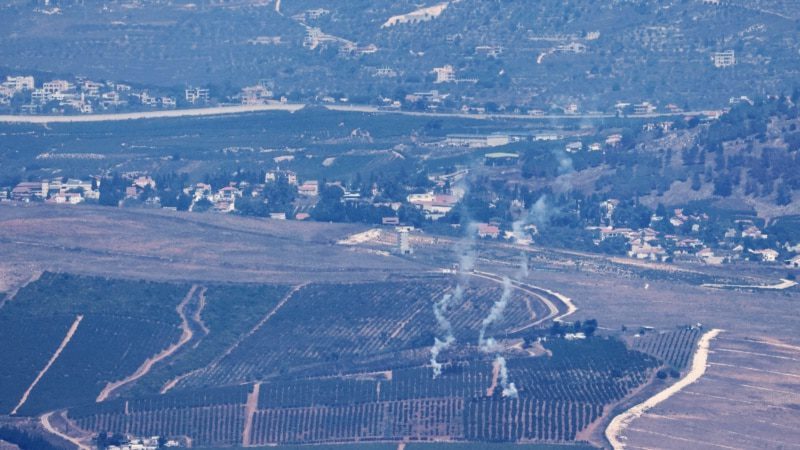BTN News: Tensions in the Middle East have escalated sharply, with the Lebanese armed group Hezbollah launching a series of drone and rocket attacks on northern Israel on Tuesday. These assaults, targeting military sites near Acre and a military vehicle elsewhere, are seen as a precursor to the promised retaliation by Hezbollah for the recent killing of one of its top commanders by Israel. The group, however, has cautioned that the full extent of its retribution is yet to be unleashed. This ongoing conflict between Hezbollah and Israel, which has been simmering for months, now threatens to spiral into a full-scale war, with regional implications that could destabilize the broader Middle East.
Hezbollah’s latest actions involved launching an array of attack drones at two Israeli military positions near the city of Acre. The Israeli military confirmed that several hostile drones had crossed the border from Lebanon, and while one was intercepted, others caused significant damage. Civilians south of Nahariya, a coastal city, were injured in the assault. In the aftermath, footage revealed the impact near a bus stop on a major road outside the city, underscoring the vulnerability of civilian areas in this conflict.
In a twist of events, sirens blared around Acre, signaling a potential threat. However, the Israeli military later confirmed that it was a false alarm. In retaliation, the Israeli Air Force struck two Hezbollah facilities in southern Lebanon, further intensifying the already volatile situation.
This exchange of hostilities comes against the backdrop of heightened fears that the Middle East is on the brink of a full-scale war. Hezbollah has vowed to avenge the assassination of Fuad Shukr, a senior commander, who was killed by Israel last week. The threat looms larger as Iran, a key ally of Hezbollah, has also pledged to respond to the killing of a senior Hamas official in Tehran just days ago.
Adding to the gravity of the situation, Hezbollah has made it clear that the attacks carried out on Tuesday are only the beginning, with more significant actions expected as they prepare to respond to Shukr’s assassination. A source within the group emphasized that “the response to the killing of commander Fuad Shukr has not yet been delivered.”
Earlier on Tuesday, another deadly incident occurred in the Lebanese town of Mayfadoun, approximately 30 kilometers from the border with Israel. A house was struck, resulting in the deaths of four individuals, according to medical and security officials. While two security sources identified the deceased as Hezbollah fighters, the group has yet to issue its customary death notices.
For nearly a year, Hezbollah and the Israeli military have been engaged in sporadic exchanges of fire, primarily focused on the border region. This ongoing conflict has run parallel to the war in Gaza, yet the latest developments suggest that the scope of this confrontation may soon expand beyond the border, with potentially devastating consequences.
The assassination of Fuad Shukr, who was considered Hezbollah’s top military commander, marks a significant escalation in this conflict. Shukr was targeted and killed by Israel in a strike on the group’s stronghold in the southern suburbs of Beirut. This act has drawn a sharp response from Hezbollah’s leader, Sayed Hassan Nasrallah, who has vowed retaliation. Nasrallah has stated that the response will be “studied,” hinting at a carefully planned but severe reprisal.
As the situation continues to evolve, all eyes are on Nasrallah, who is expected to address the group during a commemorative event marking a week since Shukr’s death. His words could signal the next phase in what is increasingly looking like a broader conflict, with the potential to drag the entire region into a state of war.


